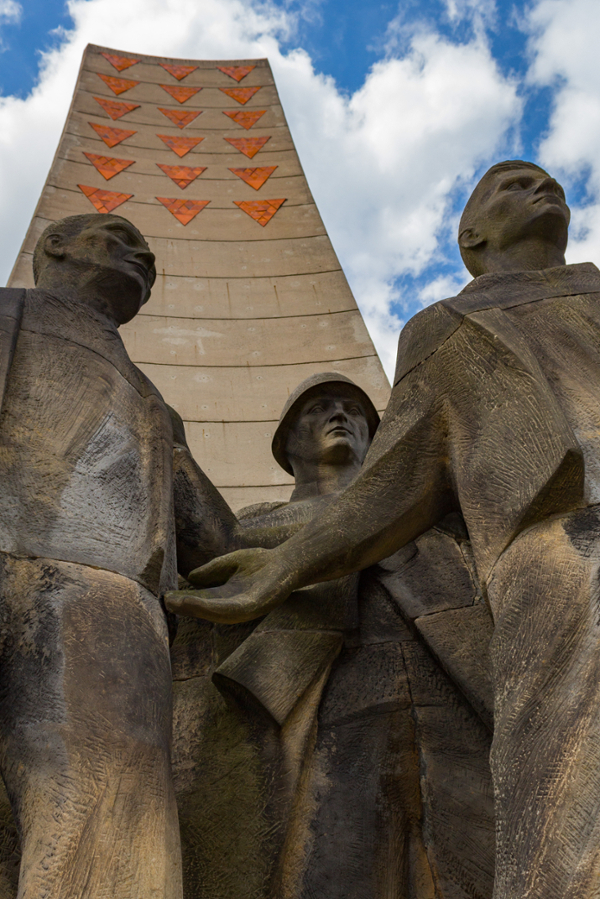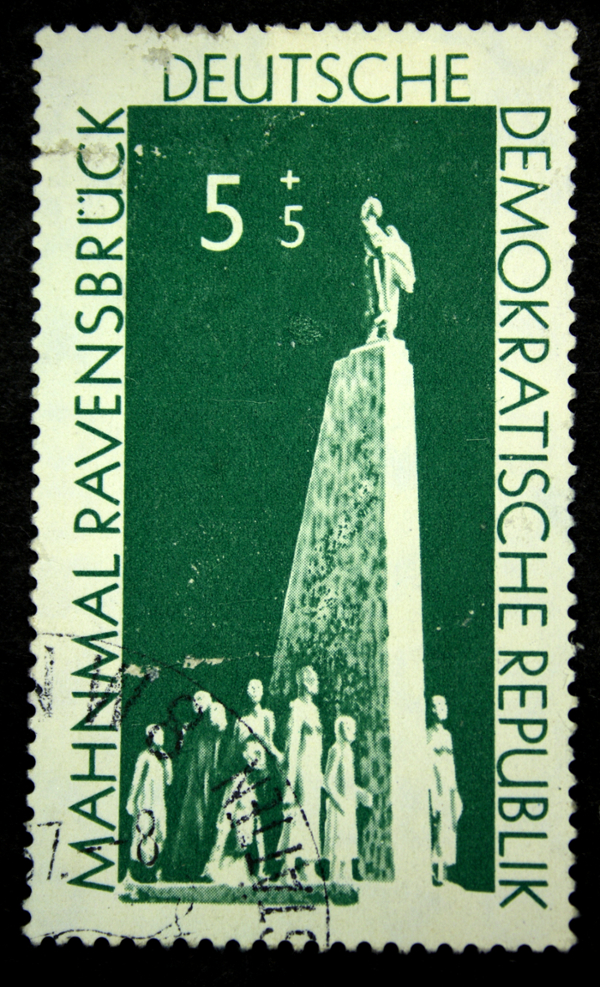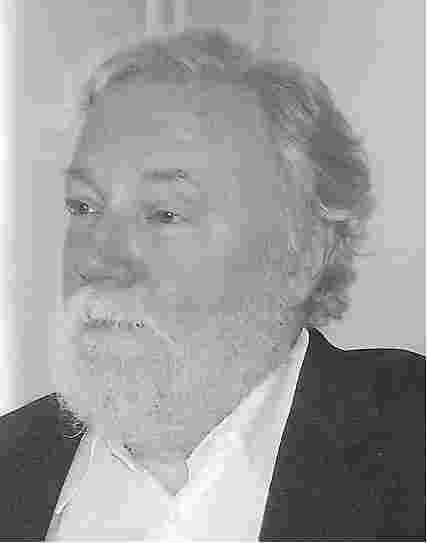Bodo v. Borries: Covering of Burdening NS-Crimes - especially the Shoah - in the "German Democratic Republic" (1949-1990)
Monday, July 27, 202012-1:30 pm Eastern Time (US)
Zoom Webinar
You can watch a recording of this and other CGES webinars by clicking the button above.
About the Event
 The lecture discusses four points:
The lecture discusses four points:
a) "Anti-fascism", the successful resistance of the communists in the Soviet Union against national socialism, was the officially legitimating basis of the GDR. Visits in memorials of concentration camps, especially in Buchenwald near Weimar, were obligatory for all school students.
b) Nevertheless, the information about many severe NS-crimes, especially the Shoah, remained miserably poor until 1989 (examples). Thus, the population was relieved form all NS-guilt (and anti-Semitism) indirectly.
 c) After the German unification in 1990, opinion polls have shown some more pride in workers' NS-resistance among East-German school students than among their West-German colleagues, but much more pride in "German Nation" and fascination by chauvinist ideas as well.
c) After the German unification in 1990, opinion polls have shown some more pride in workers' NS-resistance among East-German school students than among their West-German colleagues, but much more pride in "German Nation" and fascination by chauvinist ideas as well.
d) Today, the preference of minorities of grown-ups for right-wing populist - even extremely right and neo-fascist - ideas is well-known. In the Federal election of 2017 about 20% voted in favour of the "Alternative for Germany" (AfD) in the Eastern and 10% in the Western member-states. The deficient working-through of NS in the GDR is an important cause for the crises of democratic parties in Eastern Germany, but not the only one.
Photos: (1) Soviet monument at Sachsenhausen concentration camp memorial site, (2) Stamp printed by GDR (East Germany) showing the monument at concentration camp Ravensbrück, circa 1950 (both Shutterstock)
About the Speaker
 Bodo von Borries (Prof. Dr. ), born 1943 in Berlin (Germany), study of history, German language and literature, and social sciences. Doctor's degree in "social and economic history" in 1968 at Bonn University (Germany). Some years of professional work in university reform. High school teacher in the fields of history and German language.
Bodo von Borries (Prof. Dr. ), born 1943 in Berlin (Germany), study of history, German language and literature, and social sciences. Doctor's degree in "social and economic history" in 1968 at Bonn University (Germany). Some years of professional work in university reform. High school teacher in the fields of history and German language.
1976-2008 professor of Education (with special respect to the learning and teaching of history) at Hamburg University (Germany). Main areas of investigation: concepts of historical learning and teaching, analysis of history-textbooks, production of alternative teaching material (especially non-European history, women's history, history of childhood, environmental history), empirical studies on the development of historical consciousness among children and adolescents using qualitative and quantitative accesses.
Since 1989 representative cross-cultural studies on historical consciousness, questioning of adolescents and their teachers in East and West Germany (1990, 1992) and in Eastern and Western Europe ("YOUTH and HISTORY" 1995) in order to use comparative methods for deeper understanding of national traditions and particularities.
(Mainly Younger) Monographs
Kolonialgeschichte und Weltwirtschaftssystem. Europa und Übersee zwischen Entdeckungs- und Industriezeitalter 1492-1830; Düsseldorf 1986. ("Colonial History and World Economy")
Geschichtslernen und Geschichtsbewußtsein. Empirische Erkundungen zu Erwerb und Gebrauch von Historie; 1988. ("Historical Learning and Historical Consciousness")
German History. A Pupils' Competition for the Federal President's Prize; 1989. (German, French and Spanish versions also)
Geschichtsbewußtsein als Identitätsgewinn? Fachdidaktische Programmatik und Tatsachenforschung; 1990. ("Historical Consciousness as Development of Identity?")
Wendepunkte der Frauengeschichte (I). Ein Lese- und Arbeitsbuch zum An- und Aufregen; 1990, 2nd ed. 2001. ("Turning Points of Women's History (I)")
Kindlich-jugendliche Geschichtsverarbeitung in West- und Ostdeutschland 1990. Ein empirischer Vergleich; 1992. ("Processing of History by Children and Youth in West and East Germany 1990")
Das Geschichtsbewußtsein Jugendlicher. Erste repräsentative Untersuchung über Vergangenheitsdeutungen, Gegenwartswahrnehmungen und Zukunftserwartungen in Ost- und Westdeutschland; 1995. ("The Historical Consciousness of Young Persons")
Imaginierte Geschichte. Die biografische Bedeutung historischer Fiktionen und Phantasien; 1996. ("Imaginated History")
Vom "Gewaltexzeß" zum "Gewissensbiß"? Autobiografische Zeugnisse zu Formen und Wandlungen elterlicher Stafpraxis im 18. Jahrhundert; 1996. ("From 'Excesses of Violence' to 'Pangs of Conscience'?"), (with Angvik, Magne [Eds.])
YOUTH and HISTORY. A Comparative European Survey on Historical Consciousness and Political Attitudes among Adolescents. Volume A: Description, Volume B: Documentation (containing the Database on CD-ROM); 1997.
Jugend und Geschichte. Ein europäischer Kulturvergleich aus deutscher Sicht; 1999. ("Youth and History")
Wendepunkte der Frauengeschichte II. Über Muttergöttinnen, Männeransprüche und Mädchenkindheiten. Modelle und Materialien zum Ausprobieren und Bessermachen; 2003. ("Turning Points of Women's History II")
Lebendiges Geschichtslernen. Bausteine zu Theorie und Pragmatik, Empirie und Normfrage; 2004. ("Lively Learning of History")
(with Fischer, Claudia, Leutner-Ramme, Sibylla and Meyer-Hamme, Johannes:) Schulbuchverständnis, Richtlinienbenutzung und Reflexionsprozesse im Geschichtsunterricht. Eine qualitativ-quantitative Schüler- und Lehrerbefragung im Deutschsprachigen Bildungswesen 2002; 2005. ("Understanding of Textbooks, Use of Syllabuses and Processes of Reflection in History Lessons")
Durchbrüche von Wirtschaft und Wissenschaft - Krisen von Umwelt und Innenwelt? Versäumte Lektionen zur Ökologie- und Mentalitätsgeschichte; 2006. ("Breakthroughs of Economy and Science - Crises of Ecology and Mentality?")
Historisch Denken Lernen - Welterschließung statt Epochenüberblick. Geschichte als Unterrichtsfach und Bildungsaufgabe; 2008. ("Learning to Think historically")
Geschichtslernen und Menschenrechtsbildung - Auswege aus einem Missverhältnis? Normative Überlegungen und praktische Beispiele [Außentitel fälschlich "Menschenrechte im Geschichtsunterricht"]; 2011, 2. Aufl. [mit korrigiertem Außentitel] 2014. ("Learning History and Human-Rights' Education. Loopholes of a Disproportion")
(mit Beiträgen von Meyer-Hamme, Johannes): Zwischen "Genuss" und "Ekel" - Ästhetik und Emotionalität als konstitutive Momente historischen Lernens; 2014. ("Between Enjoyment and Disgust. Aesthetics and Emotion as Constitutive Moments of Historical Learning")